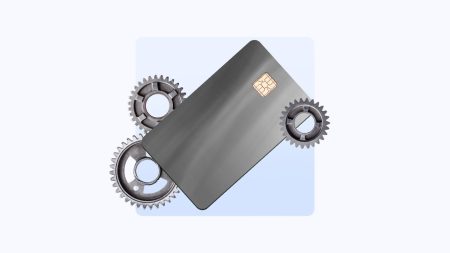Hinterhaus Productions/Getty Images
Contributing to a 401(k) plan is one of the simplest ways to save for retirement, and Americans have trillions of dollars invested in their plans. About 63 percent of all American workers had access to retirement plans, such as a 401(k), at work in 2023, according to a report by the Congressional Research Service.
But life happens, and at times you might be tempted to consider reducing your 401(k) contribution or eliminating it altogether. However, this is exactly the time to stay invested and keep contributing to your account.
Why contribute to a 401(k)? Here are 10 key reasons.
1. It’s easy to enroll
Many employers offer automatic enrollment (unless you opt out) and employee contributions, known as elective deferrals, are taken out each payday automatically so you don’t even have a chance to miss the money. Also, many employers offer automatic yearly contribution increases, typically up to 10 percent, so as your income increases, so does the percentage you save.
2. You can contribute pre-tax
Saving on a pre-tax basis means you defer the tax liability on your contributions until you retire, when you may be in a lower tax bracket. The amount you contribute on a pre-tax basis is sheltered from the IRS and doesn’t count toward your income, lowering your taxable income during your earning years. In 2024, 401(k) contribution limits are capped at $23,000 for all workers, with an additional $7,000 allowed for workers age 50 or over.
3. You can make tax-free withdrawals
If your plan allows Roth 401(k) contributions, you’ll contribute on an after-tax basis. You’ll pay taxes on your contributions at your current tax rate so that when you access the money after retirement, withdrawals are tax-free, as long as the funds have been invested for a minimum of five tax years. Contribution limits are the same as for the traditional pre-tax 401(k).
4. You can make both Roth and pre-tax contributions
Many employer plans allow you to make both types of contributions, helping you diversify your tax position at retirement. Then you’ll have the option of which account to draw from.
5. Your employer may give you free money
Employers may make matching contributions to an employee’s plan, and more than 98 percent offer some sort of matching, according to Vanguard’s How America Saves 2024 report. A typical match is up to 6 percent of an employee’s pay. Some plans provide for non-matching contributions, meaning they contribute to an employee’s account whether an employee contributes or not. Either type of contribution is an incredible benefit and part of your total compensation package, so be sure to contribute enough to maximize your match.
6. You can compound your money
Although we do not know what the future holds in terms of market appreciation, financial advisors project an average rate of return for funds invested in a 401(k) plan over the next 20 to 30 years to be somewhere between 5 and 8 percent. A contribution of $1,000 that returns 8 percent annually becomes $4,660 in 20 years, or $10,062 in 30 years. And with potentially high returns in investments such as stock funds, you may end up doing much better than that.
7. The longer you invest, the more you earn tax-deferred or tax-free
The longer the time horizon you keep your money working, the greater your chance for spectacular returns. So if recent market volatility has you nervous, don’t give into the temptation to cash out your 401(k) and put your money under your mattress! You can roll up those earnings tax-deferred in a traditional 401(k) or tax-free in a Roth 401(k).
8. You don’t need much investing expertise
Your employer has a legal and fiduciary responsibility to offer appropriate investment vehicles in their plan. These plans are set up to accommodate both employees who have no knowledge of investing, as well as employees who are savvy market watchers and investors.
9. The plan can help you live comfortably in retirement
In addition to Social Security, your 401(k) can be an important part of post-retirement income. Experts say that most people need 80 percent of their pre-retirement income to live comfortably, but Social Security alone won’t cover that. A 401(k) is a key way to ensure your retirement is what you dream it will be like.
10. It can be a last resort in an emergency
While withdrawing funds from a 401(k) before retiring is not the best course of action, if a true financial emergency arises, then borrowing from or withdrawing funds from a 401(k) could be a lifeline. Some plans also allow loans for the purpose of a down payment for a new home. Check with your employer to find out if loans or hardship withdrawals are allowed under your plan.
Bottom line
A 401(k) can be one of the best ways to plan for a secure retirement. How soon you are eligible to join your employer’s retirement plan depends on how it is set up. Some plans allow you to join on the first day of employment, but others require a waiting period. If your plan has a waiting period, consider setting up a traditional or Roth IRA to get started on retirement saving immediately.
Planning for your financial future is more important than ever. If you are considering changing jobs, be sure to ask about your potential employer’s retirement plan. If you are happy in your present position, be sure you are taking full advantage of your current plan.
— Bankrate’s Rachel Christian contributed to an update of this story.
Read the full article here












